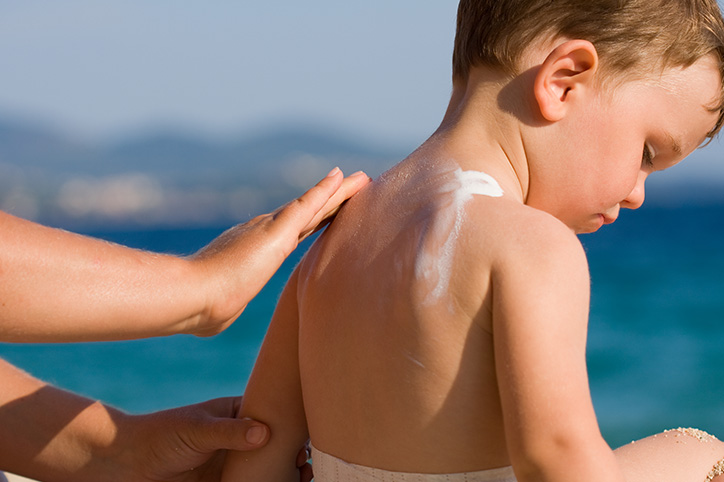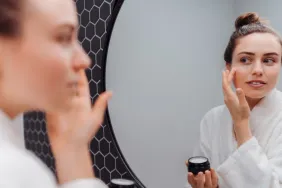Six months of age is the appropriate time to start using sunscreen – and parents should make sure their babies are wearing it daily when exposed to sunlight. Before that, babies really shouldn’t be in the sun at all since they don’t yet have enough melanin in their skin to offer them any protection and sunscreen isn’t tested on babies that young.
“When babies are very young their skin is still developing and is very prone to sunburn and is more permeable to chemicals and toxins, so less is definitely more for little ones,” says Rachel Henderson, the co-founder and CEO of mineral sunscreen brand Project Sunscreen. “Keeping your baby protected with a lightweight UPF blanket like this one or hat is a great idea when you’re out and about.”
When you’re deciding on what sunscreen to buy for your kids always look for a mineral/physical sunscreen that contains zinc oxide and/or titanium dioxide. These sit on the skin and act as a barrier to the sun, rather than being absorbed by the skin in order to work. Because they sit on skin, traditionally they were thought to be chalky and dehydrating, but there are so many great formulations these days that it’s no longer the case. The reason it’s so important to opt for physical over chemical sunscreens is that chemical sunscreen products are thought to cause cancer and hormone disruption. Remember: just because something is sold on a shelf, doesn’t mean it’s safe! There are billions of dollars in the sunscreen industry and mega-corporations aren’t going to let their potentially unsafe products be pulled from shelves without a major fight. According to Henderson chemical sunscreens can also miss protecting you to the longer wavelength UVA rays, which penetrate deeply and can be very damaging the skin long-term.
Once you have your sunscreen apply it and apply it often. “Repeated sunburns in childhood absolutely increases the risk of malignant melanoma, so protecting the skin from sunburn in kids is essential,” says Henderson. “Sun damage is also cumulative over the years and will catch up with you later in life in the form of basal cell and squamous cell skin cancers, so preventing chronic unprotected exposure is important. You don’t see it accumulating until it’s too late. Using sunscreen every day to exposed areas that will be subject to prolonged sun exposure is ideal. I always recommend applying it on to the face, neck ears, and arms before school and before you leave the house on the weekends. Already having it on before sports, beach and pool days will prevent you from getting one of those surprise burns.”
To get you started, here’s a look at sunscreen to add to your shopping cart.
More Summer Safety:
- Cute and Functional Sun-Protective Clothing & Accessories For Kids
- The Best Pool Alarms To Keep Your Family Safe
- What You Need to Know About Dry Drowning
Check Out These Kid-Safe Sunscreens
-
Pipette Baby Mineral Sunscreen Broad Spectrum SPF 50
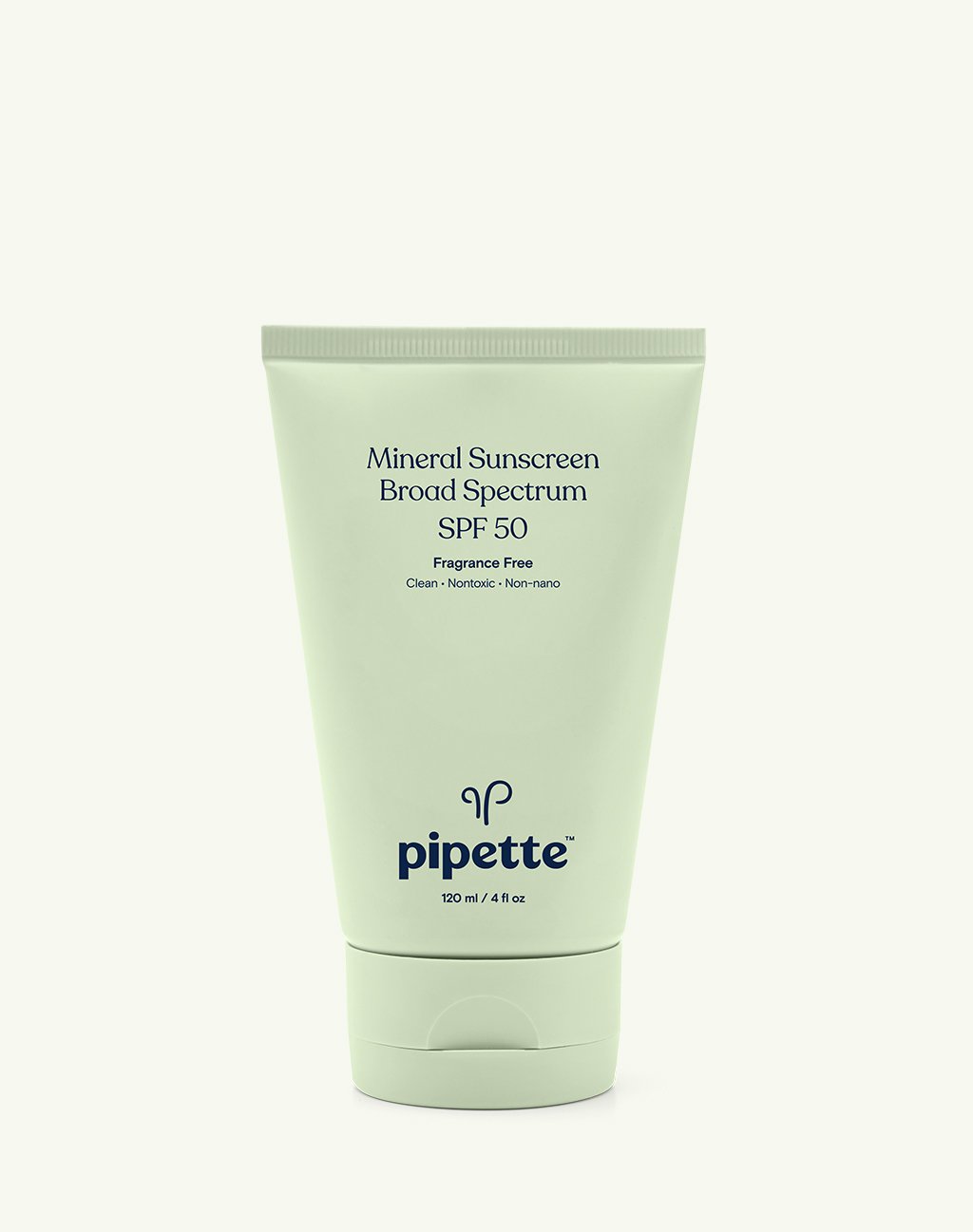
First off, everything Pipette Baby makes is amazing. From the actual purity and efficacy of the formulations to the gorgeous pistachio packaging, Pipette delivers. Their mineral sunscreen is true to form non-sticky and fast-absorbing.
$16.50 at Pipette Baby
-
Noodle & Boo Play-Day Mineral Sunscreen Spf 30
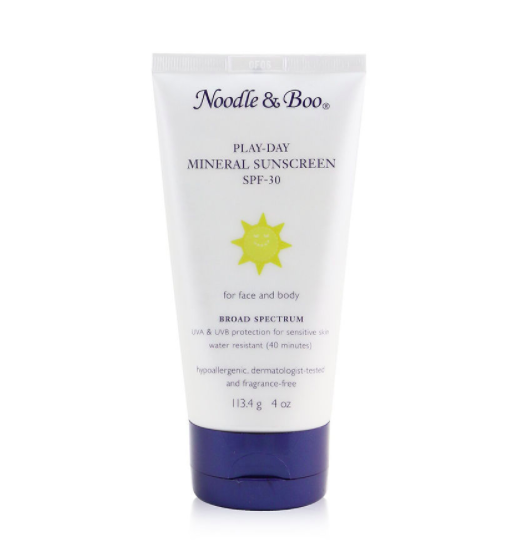
This is a great option for a little one with eczema-prone skin. It's formulated with shea butter to go on easily without white residue.
$30.74 at Fragrance Net
-
Olita Mineral Sunscreen Lotion SPF 30 Mineral Sunscreen
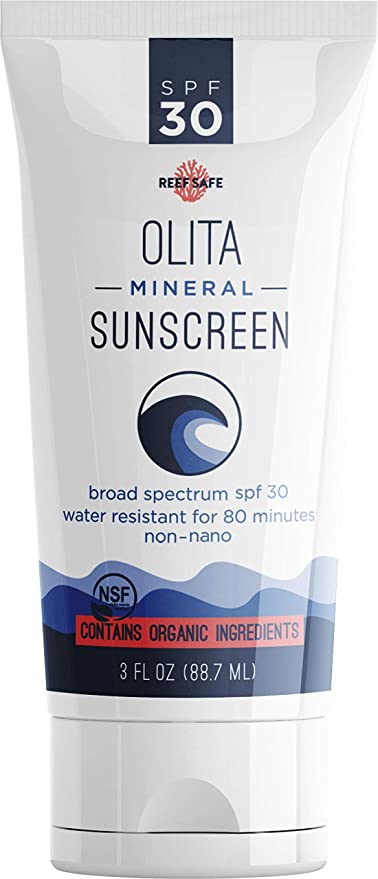
There is nothing harmful in any of these organic products - not for you or coral reefs. OLITA was awarded EWG’s safest sunscreen for kids and babies in 2020 and 2021 as well as Parent Magazine’s safest sunscreen for kids in 2021. OLITA also donates 10% of every purchase to ocean conservation by partnering with the Coral Reef Alliance.
$16 at Amazon
-
Rubber Ducky SPF 50 Water Resistant Sunscreen

Rubber Ducky sunscreen, which is formulated and made in the USA, is eight hours water resistant—you can actually see the water bead up and not soak in. It also won’t “sweat” in the eyes, freeing kids from irritation and making it perfect for outdoor sports.
$17.99 at Amazon
-
Earth Baby Broad Spectrum SPF 30+ Sunscreen
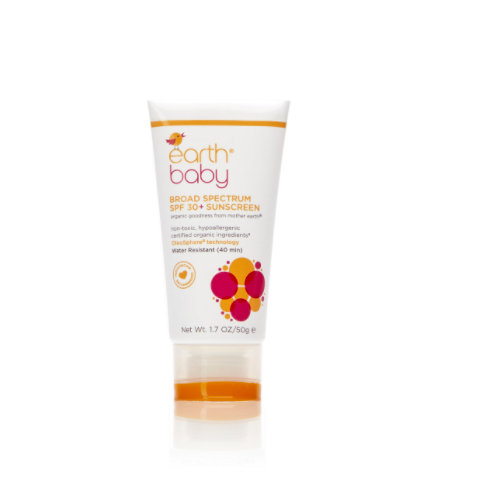
Earth Baby’s SPF 30 Sunscreen is reef-friendly, uses a non-nano zinc oxide and titanium dioxide for the best protection against UVA and UVB rays and is packed with German chamomile, mango and shea butter. It's also third party, clinically tested and certified organic.
$14 at Earth Baby
-
Project Sunscreen Sweet As SPF 50
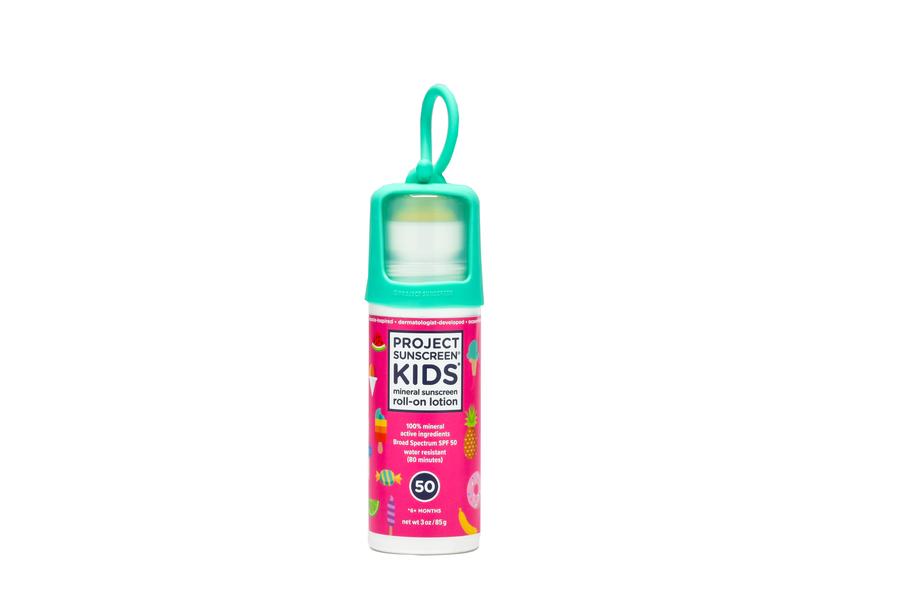
This reef-safe, non-toxic, mineral sunscreen comes with a cap topper to hook to your backpack, beach tote or stroller.
$16.99 at Project Sunscreen
